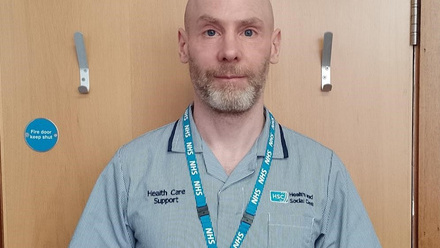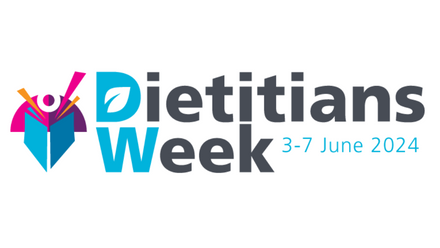Dietetic assistants and support workers are a vital part of the dietetic team, working alongside RDs to support patients and improve services. We put some questions to three of our members to find out more about their roles and why they considered it as a career.
Liberty Hawker is a Dietetic Support Worker at Gloucestershire Hospitals NHS Foundation Trust, Gemma Mason is a Dietetic Assistant Practitioner at GHNFT and Grace Taylor is a Dietetic Assistant at Manchester University NHS Foundation Trust.
Tell us about your roles, what difference do they make to patient care?
Gemma: “My role is constantly being developed but at the moment it involves assisting the dietitians and enteral nutrition nurses with the head and neck cancer patient caseload. The main objective is to improve the quality of care that the Home Enteral Feeding team provides by providing an extra pair of eyes and ears on the ground for patients in the community setting.”
Liberty: “My role involves liaising with GPs and other healthcare professionals to ensure each patient has a cohesive care plan and help to keep an open line of communication between our own team and other healthcare teams. I also am involved in several projects within my team, working to improve the quality of our patient’s documentation, ensuring they receive appropriate and prompt care whenever needed.”
Grace: “I think the dietetic assistant role gives patients and families improved patient care/experience as we are there to listen to their query and pass it onto the right dietitian for it to be dealt with effectively.”
What attracted you to this career?
Liberty: “I was attracted to the opportunity to assist patients with their care and improve their quality of life. I was excited to join such a proactive and well-functioning, caring team and to immediately begin learning about a completely new (to me) area of healthcare.”
Grace: “I was attracted to the role because I am currently a registered nutritionist with the Association for Nutrition and I am interested in a future career as a dietitian. I think I is a great opportunity to gain experience and an insight into the roles and responsibilities of a paediatric dietitian and exposure to what it takes to be a successful and caring RD in the NHS.
Gemma: “I completed my degree in 2020 in human nutrition so my aim was to begin my career in nutrition. I was looking for a role within an already well-established team where I could build and develop skills and knowledge gained from my course.”
How has training and development in your role helped you so far?
Grace: “I’ve been well supported by the dietitians I work with, and my knowledge has expanded quickly. We have a monthly journal club which covers a different speciality each month, which has also helped develop my understanding.”
Gemma: “The assistant practitioner role allows me to gain the valuable hands-on experience with patients and dietitians in a clinical setting. The role is extremely varied which means I get to use and develop a variety of skills as well keeping my day-to-day job fresh and interesting.”
Liberty: “The training and support I have received so far within my role has been outstanding, allowing me to learn and develop quickly as a healthcare professional. I have received training and have developed my skills in all necessary areas directly related to my role in the Home Enteral Feeding Team.”
What are you most proud of in your role?
Liberty: “Knowing that our patients are satisfied with the care they receive from us, and that they feel comfortable with our team members and feel listened to by us, is the most rewarding aspect of my role.”
Grace: “I’m proud of how I value patients and their family’s requests/concerns and will ensure that I go above and beyond so that they receive the best care. I am also proud of how well the team and department work together.”
Gemma: “Having the time to spend really listening to patients when I make visit bookings or first phone calls. It’s a life changing experience having a feeding tube, even if only temporary. Being able to give patients the opportunity to unload their concerns is a privilege.”
What would you say to others to encourage more people to become dietetic assistants or support workers?
Grace: “I would encourage others who are considering a career as an AHP to become a support worker as it gives you a great insight to the role and skills required. It is also a great career for those who are interested in health and wellbeing.”
Gemma: “I have only been in the role for four months and already feel like I’ve learnt so much. Not just about nutrition and health conditions but important skills like time management, communication skills, working within a team.”
Liberty: “If you are looking for a role in which you are an integral part of a team working towards a common goal, and enjoy feeling valued and challenged in your role, a support worker role may be right for you. Being a support worker within the NHS holds so much potential for growth and learning development within whatever area of healthcare you choose.”
Read more AHP Support Worker Case Studies on the Health Education England Website here.






